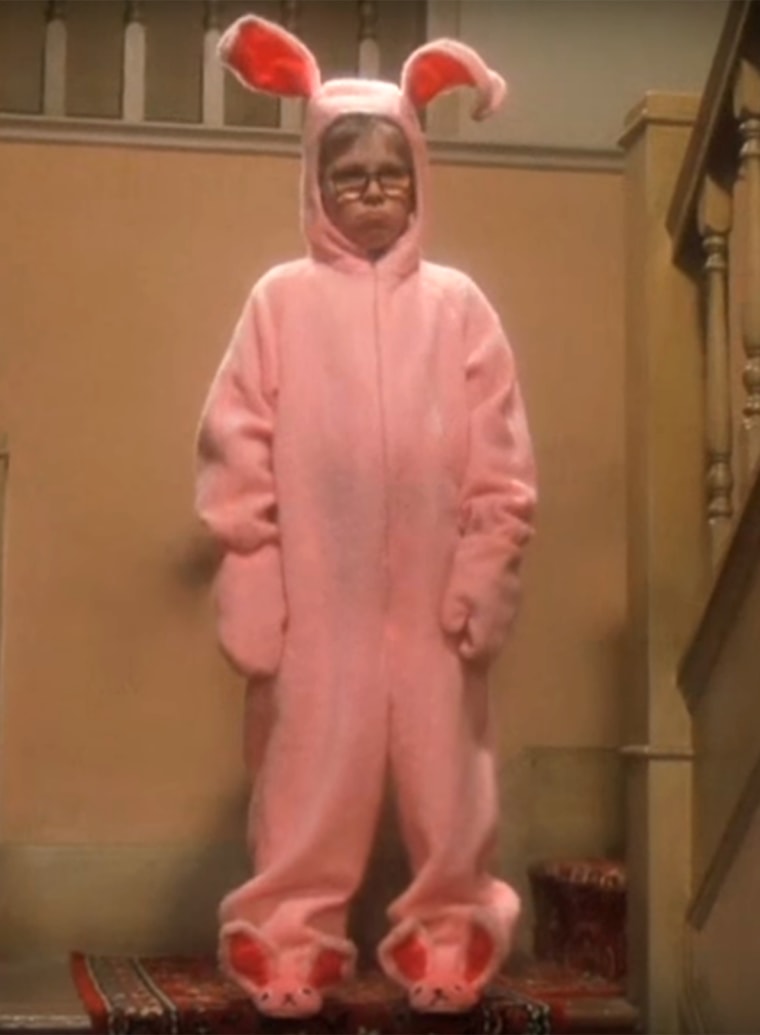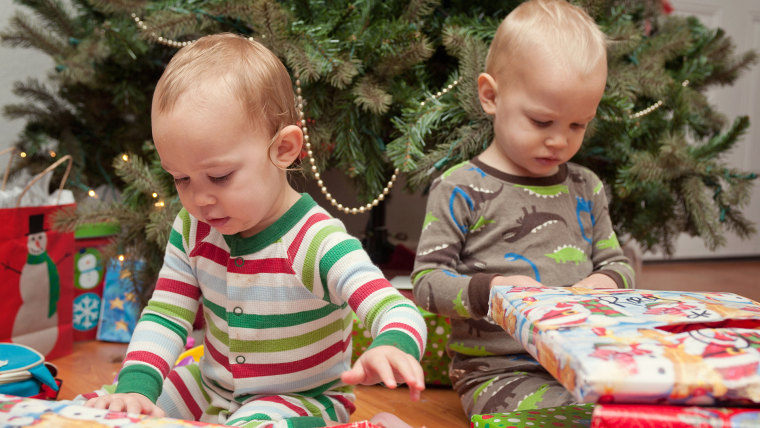On Christmas morning the kids run to the tree, gleaming with hope and anticipation in their eyes. As they open the first present, you see it coming — the white socks peeking through the paper — and you know your child is either a) about to lose it or b) toss it to the side.

Faced with the threat of tantrums, some parents ditch the presents altogether, while others embrace the excess. Whatever your kid-gifting style, using proactive strategies before the holiday can help prevent meltdowns and reinforce a spirit of gratitude.
But for those moments when it’s too late and your kiddo is in full meltdown mode, these tips will help rein in a Christmas catastrophe.
Your first order of business: Figure out the "why." A child's problematic behavior typically happens for a few reasons: He's seeking attention, he's trying to avoid something or he's reacting to the gift itself. What you do next will depend on the reason the tantrum is occurring in the first place.
1. Your child wants attention
A youngster may turn up bad his behavior because it elicits either positive or negative attention from you, such as when a sibling is getting your attention for his or her present or when you're talking with someone else during Christmas dinner.
Here's what you can do:
Ignore it. If the behavior is not dangerous, pretend like it’s not happening and turn your attention to someone else who is acting appropriately.
Give selective attention. As soon as the negative behavior stops, acknowledge it.
Give peer attention. Some kids immediately change their behavior when someone else is getting attention, so make a big deal out of another child who is doing the right thing.
2. Your child wants to escape
No one can blame Ralphie for not wanting to wear the pink bunny suit his Aunt Clara got him in "A Christmas Story." But when your kid behaves like he wants to avoid doing something, like saying "thank you" for a gift, or resists opening a present because he knows he won't like it, here's what you can do.

Follow through. If you want to pick the battle, make her open the present. Seems simple, but really, it’s up to you because it will take effort on your part.
First, then. This is the tried-and-true Grandma’s rule. To get to the good stuff, you have to get through the hard stuff. Tell your child to do one task first. Then she can have something she wants.
Give an unfavorable option. Saying something like, “OK, you don’t have to say ‘thank you,’ but then you won’t be able to open any more presents,” can be effective as long as he's motivated to continue with gifts.
3. Your child didn't get the gift he wanted
We've all heard it. "I want what he has," or "I wanted the (better) version." Your little one can act up when a present is taken away or denied or a wish is unfulfilled.
Reality check. It's fine to simply say and act on the threat of returning a present in the face of ungrateful behavior. If your child continues to throw a tantrum, send him to a quiet space to work it out. He can come back when he calms down.
Do not give in. Concessions can add fuel to the fire. Don’t give the complainer the sibling's toy.
Ask for a turn. Prompt your child to calmly ask for a turn to play with the toy. If the sibling says no, then he'll need to learn to accept the decision and move on.

4. Celebrate your child's positive actions
Once you've identified the problem and taken the steps to diffuse the wailing, make sure you praise your child's good behavior. Here are some woo-hoo-worthy actions:
Sharing. Reinforce good behavior by creating opportunities for your child to share, then commenting on it immediately.
Saying "thank you." Gratitude is not innately learned. Make it a goal for your child to say "thank you." She may not love everything, but the alternative is a poor attitude and that’s not OK.
5. Acknowledge your child's feelings
It’s OK for kids to have feelings and be mad, and they should feel good about using words to express themselves. When they don't, say something like “I see that you’re mad and that’s OK. You can squeeze your fists or walk away. But you can't roll on the ground. Let’s practice.”
AJ Rodrigue is a Board Certified Behavior Analyst (BCBA) with two energetic kiddos and two angels above. She founded The Behavior Momma, a platform that helps parents connect with their kids using simple, behavioral-science strategies. AJ believes that behavior analysis is a life-changing methodology that can help anyone with anything.